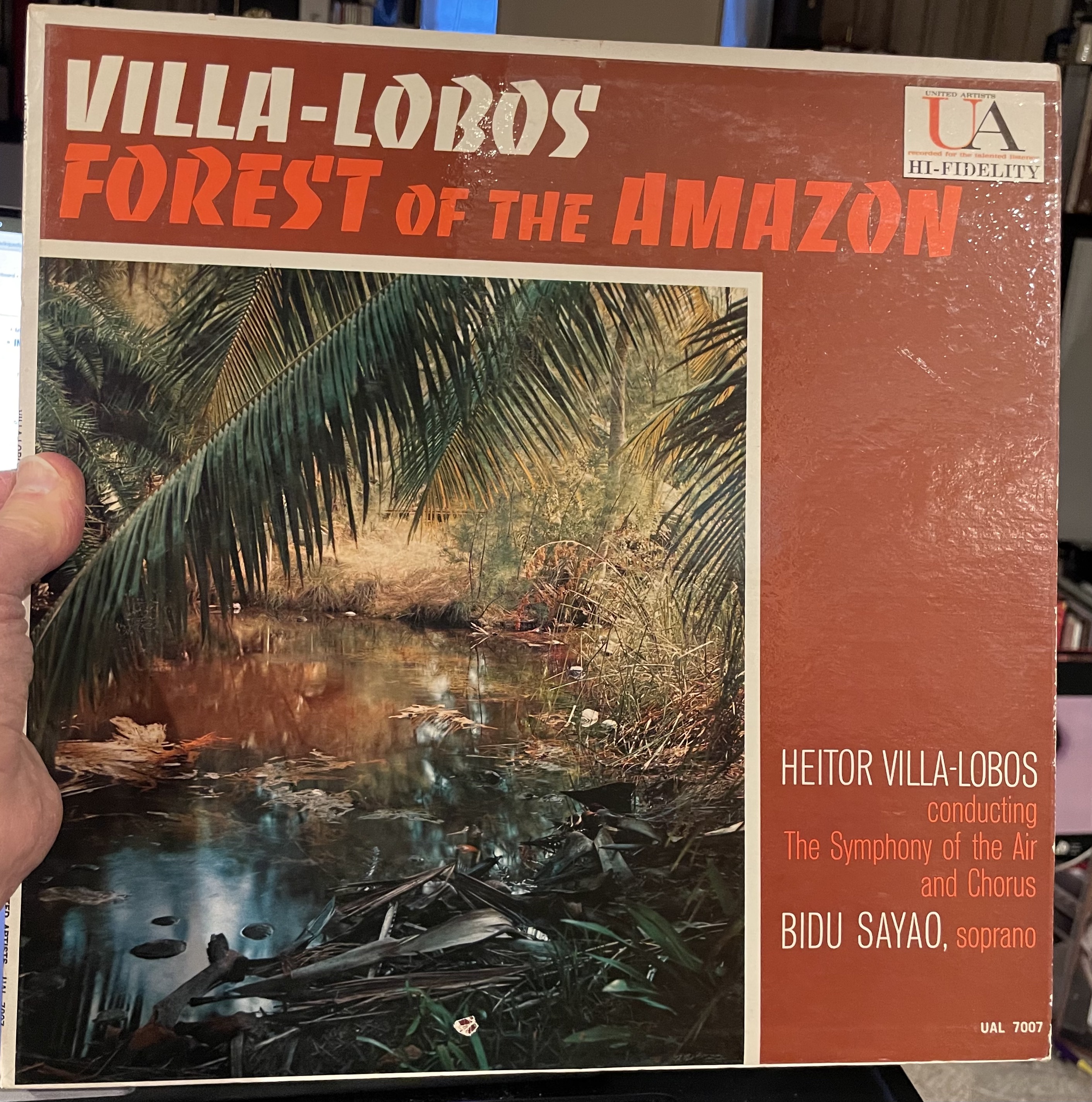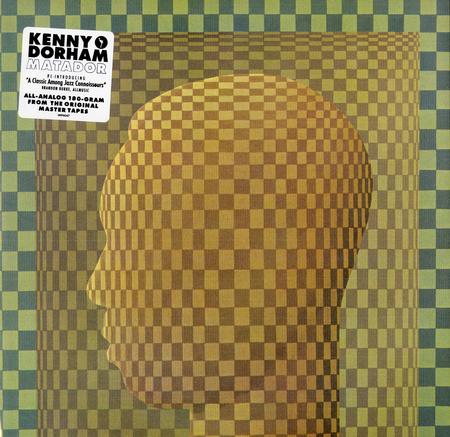IMPEX Remembers Kenny Dorham's "Forgotten" 1963 United Artists Release
the one that got away.....
The story behind this "forgotten" release and re-release is interesting, but not nearly as interesting as the music, which is a refreshing turn in a world of "undiscovered gems" that often turn out to be undiscovered for good reasons and not gems at all.
Downbeat critic Ira Gitler gave Matador a well-deserved very positive review when it was first released in 1963 (Dorham was also for a time late in his life a Downbeat critic).
Two things prevented the album from becoming better known and more successful. One was that it was released on the somewhat obscure United Artists Jazz label.
United Artists was founded in 1919 by D.W. Griffin, Charlie Chaplin and Mary Pickford to produce and distribute motion pictures. When the long playing record "craze" took off in the mid 1950s studios like Warner Brothers wanted in. So did United Artists. UA executive Max E. Youngstein started the record label to distribute the film company's soundtrack recordings.
One of the first was Brazilian composer Heitor Villa-Lobos's Forest of the Amazon, released in 1957 and adapted from the soundtrack score he wrote for the MGM motion picture "Green Mansions".
 Of course UA also released the motion picture soundtrack to The Beatles's A Hard Day's Night, many James Bond classic soundtracks including Goldfinger as well as many other rock and r&b titles. Later it joined labels like A&M in the British rock buying spree, picking up Traffic from Island Records.
Of course UA also released the motion picture soundtrack to The Beatles's A Hard Day's Night, many James Bond classic soundtracks including Goldfinger as well as many other rock and r&b titles. Later it joined labels like A&M in the British rock buying spree, picking up Traffic from Island Records.
The label hired Alan Douglas (Rubenstein) in 1960 to develop and run a jazz division. Douglas produced many memorable titles for United Artists Jazz, whose packaging had a distinctive look and feel that IMPEX here has faithfully reproduced. One was the Bill Evans-Jim Hall classic Undercurrent about to be reissued AAA by Jackpot records from a tape that based on the previous reissues from Pure Pleasure and Mobile Fidelity must be beat beyond redemption. Another is Money Jungle, which teamed Duke Ellington, Max Roach and a not particularly happy Charles Mingus. The Tone Poet reissue of that title is the best sounding version ever released. It was an example of Douglas's audacious producing prowess and in my opinion a "must have" Tone Poet.
However, despite many great titles and some rave reviews, the label never achieved Blue Note or Impulse gravitas, possibly because of limited distribution or some other reason unrelated to recording or packaging quality. That may be one reason that Matador was somehow forgotten.
Dorham's performing and recording career was impressive from the start, joining Charlie Parker's band in 1948, in 1956 replacing Clifford Brown in Max Roach's quartet after his tragic death, and as leader of the Jazz Prophets, recording for Blue Note 'Round About Midnight at the Cafe Bohemia with Sam Jones, Bobby Timmons, J.R. Montrose and guest Kenny Burrell. And of course the gorgeous ballads album Quiet Kenny with Tommy Flanagan, Paul Chambers and Art Taylor issued in stereo in 2017 by Analogue Productions, by Craft in mono for RSD 2021 and also by The Electric Recording in both mono and stereo. It's a great record!
The annotation here describes Dorham's "difficulties and personal problems", which "led him to self-imposed obscurity." He returned to trumpet playing greatness to record this album a decade before his death due to kidney failure at age forty eight. He's joined by Jackie McLean, Bobby Timmons and two lesser known players, bassist Teddy Smith and drummer J.C. Moses.
Everyone knows one of Smith's performances: he's playing the indelible bass line on Horace Silver's "Song to My Father" better known among rock fans as the lead line of "Rikki Don't Lose That Number". Moses never recorded as a leader and also died young at 41 but he played with many "free jazz" players. This was his only session with Dorham.
The title tune, Dorham's only contribution to the album, was inspired by his then recent four country tour of South America as part of the First American Jazz Festival. Like so many others who traveled south, he was particularly taken with the music he heard in Brazil. Jackie McLean's three-part suite "Melanie" (better known as "Melody for Melonae" begins with a down tempo Thelonious Monk quote and then takes flight and back for the rest of side one. Side one's intense workout is chilled on side two with a trio of standards including Chaplin's "Smile" and a Villa-Lobos composition "Prelude".
The late, underrated but great recording engineer Bill Schwartau delivers superb sound here putting Timmons in the left channel, Moses and Smith in the right and Dorham and McLean center stage eerily in three-dimensions. Schwartau would later use this immediate left-center-right style to record Peter, Paul and Mary. It worked equally effectively for both musical styles.
Why is this album "the one that got away"? A few years ago, Joe Harley was preparing Matador for release as part of the Tone Poet series that includes various labels that now fall under the UMe/Capitol/Blue Note umbrella, when he received a call from the folks at RTI telling him that IMPEX was releasing the album. It had been in the works for quite some time before the Tone Poet series had been finalized and in fact, had a short release June 2021 when Covid hit. I've had a promo pressing here since then but was asked to not review it until it was back in stock and readily available, which it is now.
I asked Harley about not having this for his series and he told me it was not a problem since he and Abey Fonn are good friends, but going forward UA releases would all come from the Tone Poet. Chris Bellman cut this release using the original analog master tape and the sound is outstanding. Pressed at RTI. Highly recommended for music and sound!
One last curiosity. When the record showed up back in 2021 the cover looked familiar. I quickly realized the cover artist Frank Gauna had also done the cover for Mama Cass's pre Mamas and The Papas' group The Big Three. Perhaps the artist figured then no one would know about Matador. We do now!











































.png)








